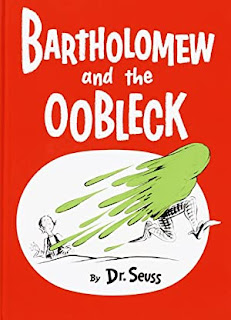A man opened a fish store and put up sign, “Fresh Fish Sold Here.” A friend told him there is no need to say here. The owner took out that word, leaving “Fresh Fish Sold.” Another friend said there's no need to say “fresh”—no one expects to be sold old fish. The owner took out that word, making the new sign, “Fish Sold.” Another friend said there's no need to say “sold”—no one expects him to give it away. That left just “Fish.” But another friend said it was not necessary to say that because it could be seen and smelled. The owner took out that word and the new sign was blank.
The punchline of the original story was that the business failed due to lack of advertising. But I would suggest two key takeaways.
One is that whenever you seek to satisfy everyone, you end up satisfying no one. Those of us who have had to satisfy committees with copy know all-too-well how true that is. One wants a more playful tone, while the other insists on something that's all business. One wants simple language, while another mistakes jargon for proof of expertise. Satisfying them all renders the final copy bland and forgettable.
The other is that while cutting out unnecessary words is the essence of editing, you have to really know what you're doing. Otherwise, you are throwing out the baby with the bathwater -- or should we say fish with the saltwater in this case?
One is that whenever you seek to satisfy everyone, you end up satisfying no one. Those of us who have had to satisfy committees with copy know all-too-well how true that is. One wants a more playful tone, while the other insists on something that's all business. One wants simple language, while another mistakes jargon for proof of expertise. Satisfying them all renders the final copy bland and forgettable.
The other is that while cutting out unnecessary words is the essence of editing, you have to really know what you're doing. Otherwise, you are throwing out the baby with the bathwater -- or should we say fish with the saltwater in this case?
To illustrate this post, I found that life truly does imitate life and that you can purchase a sign inspired by this story on Amazon for as little as $9.99.
This blog's CTA
While it's possible to eliminate a word or two from your statements, knowing which ones to keep in order to capture the attention of your target audience is the key. That's what people who take the time to learn about your business and who buys from you have to know.
That level of tailored insight instead of a forced one-size-fits-all mold is what I deliver for my customers and clients. It's why they find the content I produce for them continues to draw people in -- even a decade after it was produced.
The here for me is not a physical store but digital contact. Check out my site: WriteWayPro.weebly.com
Related:
Step out of the spotlightWhat Edison can teach us about SEO
7 Habits of Highly Effective Content Marketers
Think Marathon Rather Than Sprint When Planning Content Marketing
Most Memorable Brand Slogans










This week on LinkedIn, someone posted a picture of a sign for a store urging customers to place holiday orders now. The poster said she would cut out some of the words. That reminded me of an old joke. How old is it? I looked it up and discovered that it was printed as early as 1890. Here's how it goes: